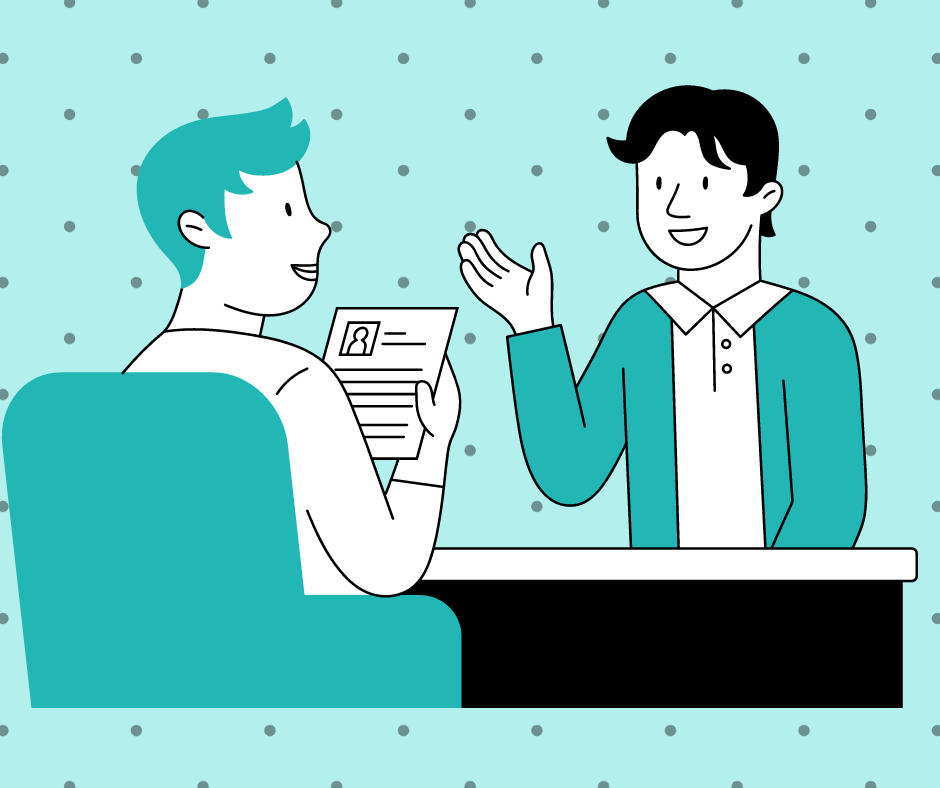
No matter the role you are going for – your job interview is most likely THE most important part of the job application process. It is also the part of the process where many of us trip up! Here at i-teachers we pride ourselves on the fantastic interview prep that we provide to all of our candidates. Have a read of our top tips on what NOT to do in your interview to help you breeze through the process of securing your next job.
Arriving late
First impressions have a huge influence on how your interview is likely to pan out. Arriving late to your interview is going to make a bad first impression before you have even got started. Lateness sets the tone for the rest of your interview – and for many could ruin your chance of success from the get-go. As with most interviewers and employers, teachers and education staff have a busy schedule and will not appreciate any waste of their time.
Don’t arrive just in time for your interview – aim to be there 15-20 minutes before the start of your interview. This allows time to find your interviewing location, deal with any pre-interview requirements and do any last minute prep. If the location of your interview is somewhere you are unfamiliar with, we would recommend travelling the route prior to your interview (at the time your interview would be) to get a better idea of how long it will take you to get there.
Dressing inappropriately
It may sound obvious but how you dress to your interview is very important. Turning up to your interview in unprofessional clothing will form an immediate impression on your potential employer. Putting little effort into your appearance can reflect little care for the role you are applying for.
Aim to ensure that you are wearing professional clothing. Of course, every interview and the formality will differ. If in doubt – dress smart!

Not doing your research
As with any role, researching the school or organisation that you are interviewing at is absolutely essential. It proves to your employer that you have a real interest in them and want to work for them. It also provides you with the information that you need to make an informed decision – not doing your research can leave you interviewing at an organisation that you may not even enjoy working at!
Not turning off your phone
Another simple but essential tip – turn off your phone! You don’t want any interruptions during the limited time that you have to impress your interviewer – especially an interruption you are responsible for! It also comes across extremely unprofessional as well as ruining the flow of your interview.
Using inappropriate language
Avoiding inappropriate language doesn’t just mean to obvious (avoiding swearing or taboo language). Adapting your language choices to suit the interview is key to acting politely, treating your interviewer with respect and being as formal as the situation requires. Be sure to take cues from your interviewer, modifying your behaviour to suit them. Try to avoid overly using slang and limit your use of filler words like ‘um’ and ‘like’ to give the best impression that you can. Try to think through your answers thoroughly so you can be sure of what you actually want to get across to your interviewer.
Having poor body language
Your body language is one of the most visible things about you in an interview, so learning to utilise it sends the right message to your interviewer.
Ensure that you are sitting up straight, smiling and not fidgeting. However, it is just as important to not focus TOO much on your body language and ensure that you seem natural. Try to be confident rather than unnerving (like staring at someone too long whilst trying to keep good eye contact).

Not being truthful
This is much more common than people would think. One of the worst things that you can do in an interview is lie about your experience. It is always important to be yourself and show off your best qualities. Instead of making something up, try and talk about your greatest achievements and pull from your actual experiences. If you do not have the desired experience – don’t say that you do! This will only see you running into problems on the job when your lack of experience is tested. Instead, make it clear that you are keen to gain the experience or training you need to do the best job.
Not asking questions
At the end of most interviews, your interviewer will ask if you have any questions for them. It is important to come pre-prepared with some questions as it shows some curiosity about your potential employer and will show off your interest in the job.
If you are struggling for inspiration, here are some simple questions to ask your interviewer:
- What do you enjoy most about working here?
- Would there be any progression opportunities for me here?
- How would you describe the culture at this school/company?
- Is there any further training that I would be required to undertake for this role?
- What does a typical day look like in this role?
- How do you help your staff to grow professionally?
